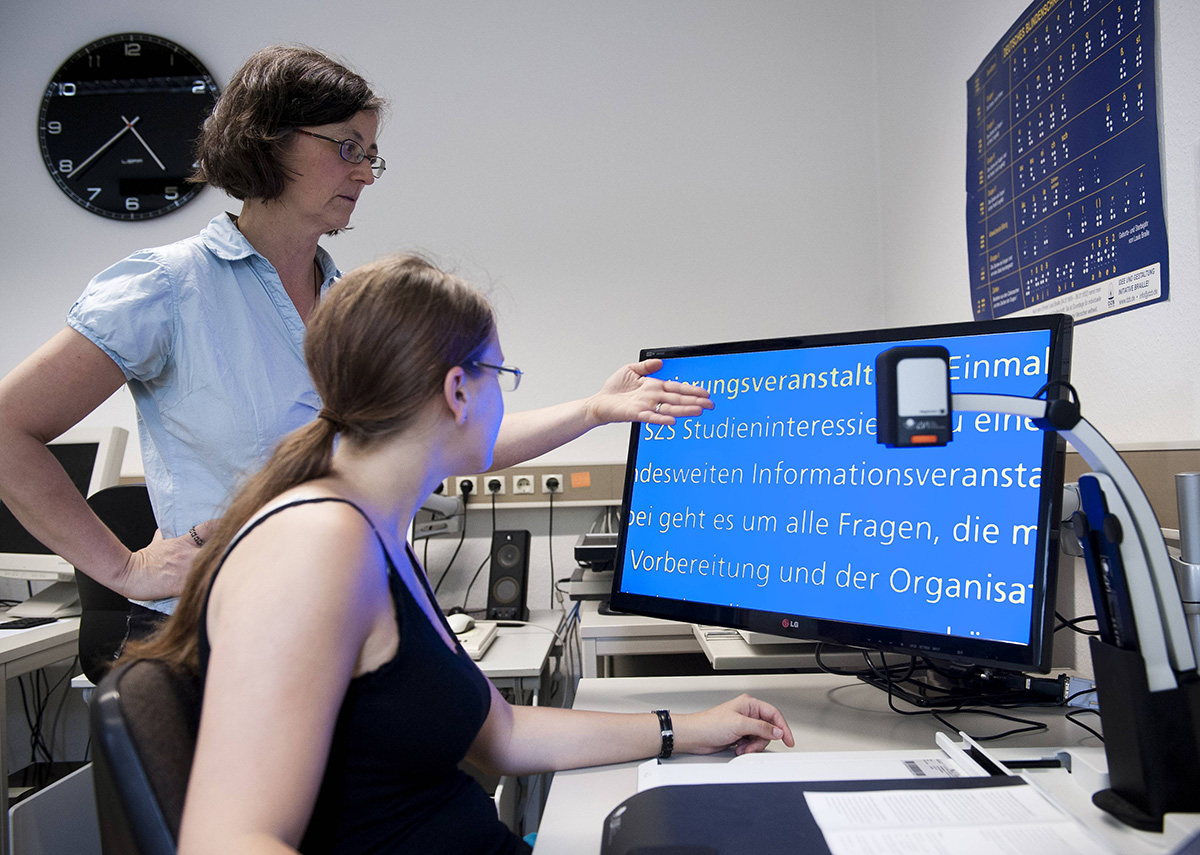Technology Supports Inclusion into Employment
Reading software makes texts audible for the blind, special apps offer learning options for people suffering from autism, video telephony enables telephone conversations in sign language. The extent to which technical developments can enable independent participation of people with disabilities is in the focus of the study “Assistive Technologies for the Inclusion of People with Disabilities into Society, Education, and Jobs” led by Karlsruhe Institute of Technology (KIT). One result: Technology for inclusion into employment exists, but often information on its potential uses is lacking.
Most people with disabilities are very much in favor of and open to proven and new technologies that enable them to lead a more independent life, the study shows. “But technology alone is not enough. It is important to develop social and political options tailored to the needs of people with disabilities,” says health scientist Maria João Ferreira Maia of KIT’s Institute for Technology Assessment and Systems Analysis (ITAS). The Institute studied the importance of assistive technologies (ATs) for the inclusion of the blind and visually impaired, the deaf and hearing impaired, and people with autism spectrum disorders on behalf of the STOA (Science and Technology Options Assessment) panel of the European Parliament.
More Information: https://www.itas.kit.edu/projekte_nier16_asstech.php
Full Text: Press Release 023/2018
afr, 06.03.2018

